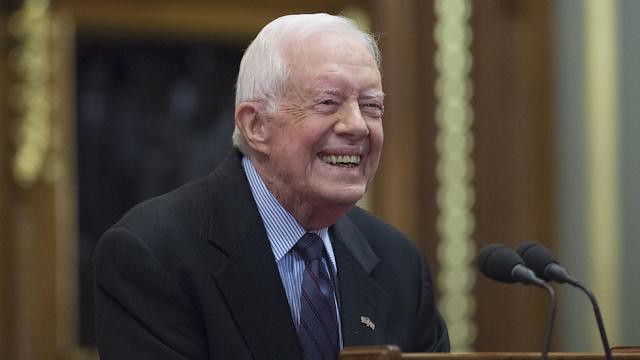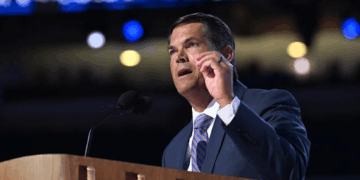Jimmy Carter, the 39th president of the United States, has become the first former U.S. president to reach the age of 100. The former president marked this milestone at his home in the same town he was born and raised in: Plains, Georgia. Many wondered if the only United State’s President hailing from Georgia would make it to this tremendous occasion as he has been under hospice care for the past 19 months. Carter, a lifelong Democrat, has expressed his desire to hold on until October 15, the start of early voting in the Peach State, so that he can participate in the upcoming 2024 presidential election.
Throughout his long life, Carter has earned a reputation as a man of integrity and commitment to public service. He served a single term as president from 1977 to 1981, during which he notably brokered the Camp David Accords, a pivotal moment in the Arab-Israeli peace process. Carter played a leading role, working closely with Egyptian President Anwar Sadat and Israeli Prime Minister Menachem Begin. Despite challenges, including a change in Israeli leadership and tensions between Arab countries, Carter persisted. Sadat’s groundbreaking decision to visit Jerusalem in 1977, followed by the Camp David Summit in 1978, led to a framework for peace. The Accords laid the groundwork for Egypt and Israel’s historic peace treaty, signed in March 1979.
Although the Camp David Accords marked significant progress, finalizing the peace treaty proved difficult. Carter’s administration faced challenges, including disagreements over Israeli settlements and the lack of support from other Arab nations. Nevertheless, through intense negotiations, including Carter’s visit to Israel, a treaty was reached, and the Egyptian-Israeli Peace Treaty was signed in March 1979. This event was a milestone in Carter’s presidency, though further efforts for Palestinian autonomy stalled as Carter’s administration turned its attention to other crises, such as those in Iran and Afghanistan.
After leaving office, Carter dedicated himself to humanitarian efforts, including his long-standing work with Habitat for Humanity and founding the Carter Center, which earned him a Nobel Peace Prize in 2002 for advancing human rights and democracy.
Though Carter’s health has weakened in recent months, his legacy endures as a former president who devoted his life to public service, promoting human rights, and advocating for democracy.















